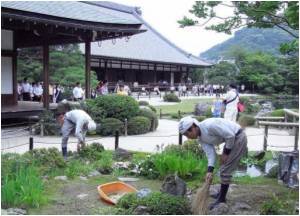The scientific community can now take a tip or two from plants on fighting diseases.

"Plants and animals live out their lives mostly in good health, though they may have been subjected to a lot of pathogenic microbes," said Dr. Libo Shan, AgriLife Research plant molecular biologist and lead author for the journal article.
"Scientists all around the world have been interested in how a healthy host can fend off invasions of pathogens and turn off the defense responses promptly once the intruder risk factors are decreasing," she added.
The researchers have found a 'unique regulatory circuit' in which BAK1, a protein involved with cell death control and growth hormone regulation, recruits two enzymes, PUB12 and PUB13 to the immune sensory complex and fine-tunes immune responses.
The surface of plant cells has sensors that sense microbial invasion. One of the best-known plant receptors is FLS2 that can sense the bacterial flagellin.
When FLS2 perceives flagellin, a series of 'evolutionary conserved immune responses' is activated to fend off bacterial attack, according to Shan.
Advertisement
"To avoid detrimental effects of long-lasting immune activation, plant and animal hosts need a way to switch the activation off. How that can be has been a mystery to scientists," she said.
Advertisement
As a result of these actions, immune signaling decreased.
Knowing how immune signaling works may help researchers devise ways to help plants and animals including humans regulate their immune systems, revealed the researchers.
The study has been published in the current issue of journal Science.
Source-ANI











